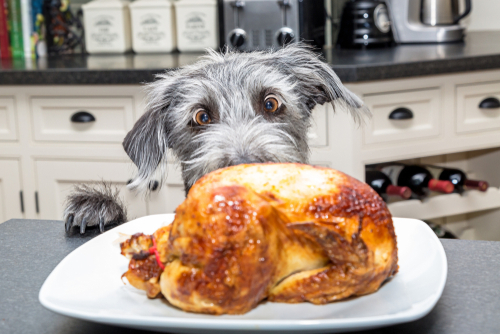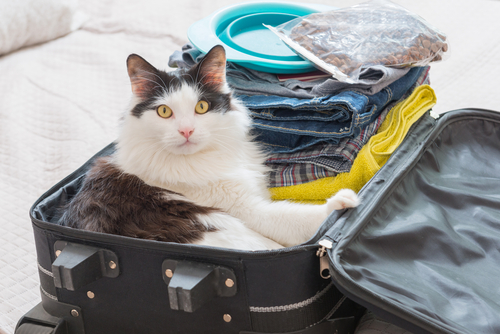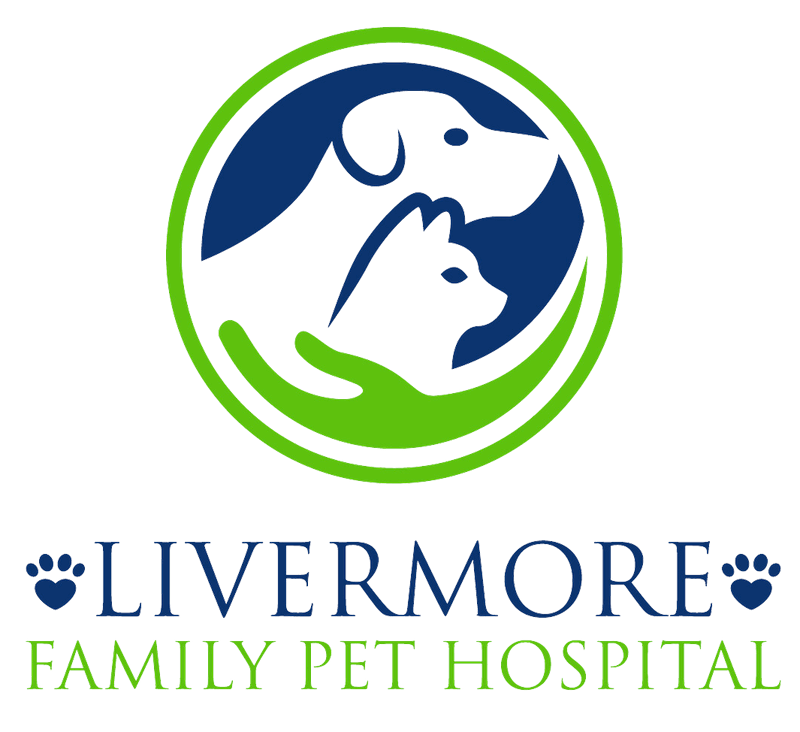
From meal preparation to house decorations, your attention is pulled in several directions as Thanksgiving approaches. Take time to ensure your pet stays safe during the holiday, to avoid an emergency room visit. Our team at Livermore Family Pet Hospital provides helpful information about potential Thanksgiving dangers, to keep your pet out of harm’s way.
Pancreatitis can be problematic for pets on Thanksgiving
Any dietary indiscretion can cause gastrointestinal upset for your pet, but fatty foods, such as turkey skin, buttered mashed potatoes, and cheesy casseroles, can cause pancreatitis in pets. The pancreas is a small organ that sits adjacent to your pet’s duodenum (i.e., the initial part of their small intestine), and regulates blood sugar and produces digestive enzymes. Normally, these digestive enzymes remain inert until they are transported to the duodenum via the pancreatic duct, but when your pet ingests a high-fat meal, the enzymes can be activated prematurely. The enzymes then start to digest the pancreas and the surrounding tissue, resulting in severe pain, and extensive inflammatory repercussions throughout the body that can have life-threatening consequences for your pet.
Foreign bodies can be problematic for pets on Thanksgiving
Pets frequently use their mouths to investigate interesting objects, which can be dangerous.
- Injuries — Cooked turkey bones are especially harmful to pets, because they are extremely brittle and can splinter easily, injuring your pet’s mouth or esophagus.
- Gastrointestinal obstruction — Small objects, such as corn cobs, plastic wrap, and small decorations, can cause gastrointestinal obstruction, if swallowed. Signs include lethargy, unproductive retching, and abdominal pain. Surgery is frequently required to remove the object.
Toxicities can be problematic for pets on Thanksgiving
Several common people foods and floral decorations are toxic to pets. Traditional Thanksgiving ingredients and floral arrangements that can be problematic include:
- Turkey brine — This solution has a high sodium content, which can cause salt toxicity. Signs include vomiting and diarrhea. In severe cases, their kidneys can be damaged.
- Allium — Vegetables in the Allium family, including onions, chives, scallions, and garlic, contain thiosulphates, which break down your pet’s red blood cells, causing anemia. Signs include vomiting, lethargy, and pale mucous membranes.
- Grapes — An unknown toxin in grapes and raisins causes kidney failure in pets. Signs include lethargy, inappetence, and increased thirst and urination.
- Alcohol — Pets are highly susceptible to alcohol poisoning. Signs include incoordination, lethargy, and vomiting.
- Chocolate — Whether in candy form or in baked goods, chocolate stimulates the central nervous in pets. Signs include agitation, vomiting, and diarrhea.
- Macadamia nuts — While all nuts are high in fat and can trigger pancreatitis if not eaten in moderation, macadamia nuts contain an unknown toxin that causes vomiting, weakness, depression, and hyperthermia.
- Xylitol — This artificial sweetener found in sugar-free candies and diabetic friendly sweets causes an insulin release in pets, causing a blood sugar drop. Signs include weakness, incoordination, and seizures.
- Lilies — Lilies can cause gastrointestinal upset in dogs, but can lead to kidney failure in cats. Every part of the plant, as well as the water in the vase, is dangerous to pets.
- Autumn crocuses — These plants are highly toxic, and can cause severe vomiting, gastrointestinal bleeding, liver and kidney damage, and respiratory failure.
- Chrysanthemums — Chrysanthemums are toxic to pets, causing vomiting, diarrhea, hypersalivation, and incoordination.
If you suspect, or know, that your pet has ingested a toxic substance, immediately call Livermore Family Pet Hospital or Animal Poison Control.
Stress can be problematic for pets on Thanksgiving
Pets can find large gatherings stressful and upsetting, leading to anxiety disorders, or escape attempts. Take precautions to protect your pet.
- Identification — Ensure your pet is appropriately identified, should they escape during the hectic festivities. Microchipping your pet is the best way to ensure they are returned home if they run away. They should also wear a collar and identification tags with your current contact information.
- Signs — Post signs on your exit doors to remind yourself, and your guests, to watch for your pet as you go in and out.
- Safe zone — Designate a room where your pet can go if they become stressed by the party. If your pet is prone to anxiety, keep them sequestered in the room, and leave music playing to muffle the party noises.
- Introductions — If your pet is sociable, introduce your pet to your guests as they arrive, so your pet is not overwhelmed by the unfamiliar crowd.
Traveling can be problematic for pets on Thanksgiving

You may not want to leave your pet behind, so if you travel with them to celebrate with family and friends, take precautions to ensure they remain safe.
- Over land — When traveling by car, ensure your pet is appropriately restrained. Small pets can remain in their carriers, and larger pets should wear an appropriately fitted harness. Also, never leave your pet alone in a parked car, to avoid heatstroke.
- By air — When traveling by plane, keep your pet with you in the cabin. The cargo hold is dangerous for pets, because the temperature is not regulated, and crates can shift drastically.
Keep your Thanksgiving free from veterinary emergency room drama with these few simple precautions. If you would like your pet microchipped before Thanksgiving, contact our Livermore Family Pet Hospital team and make an appointment.

